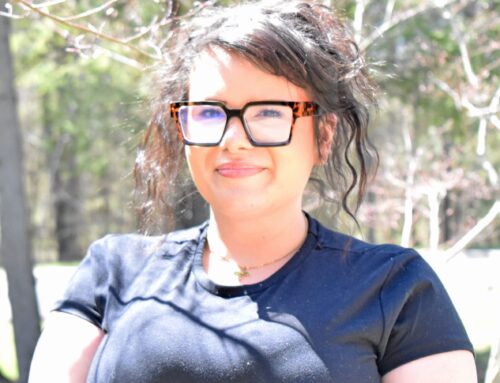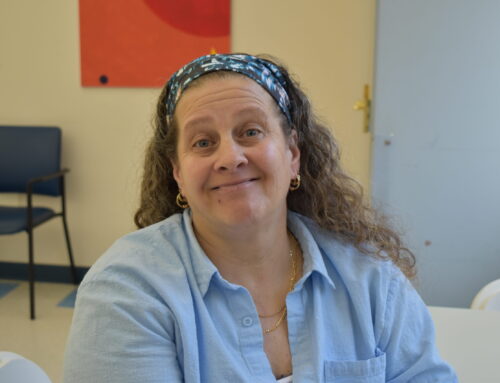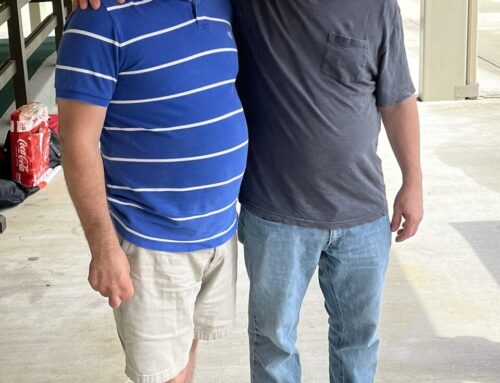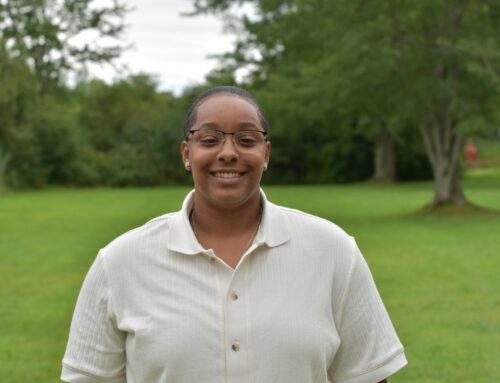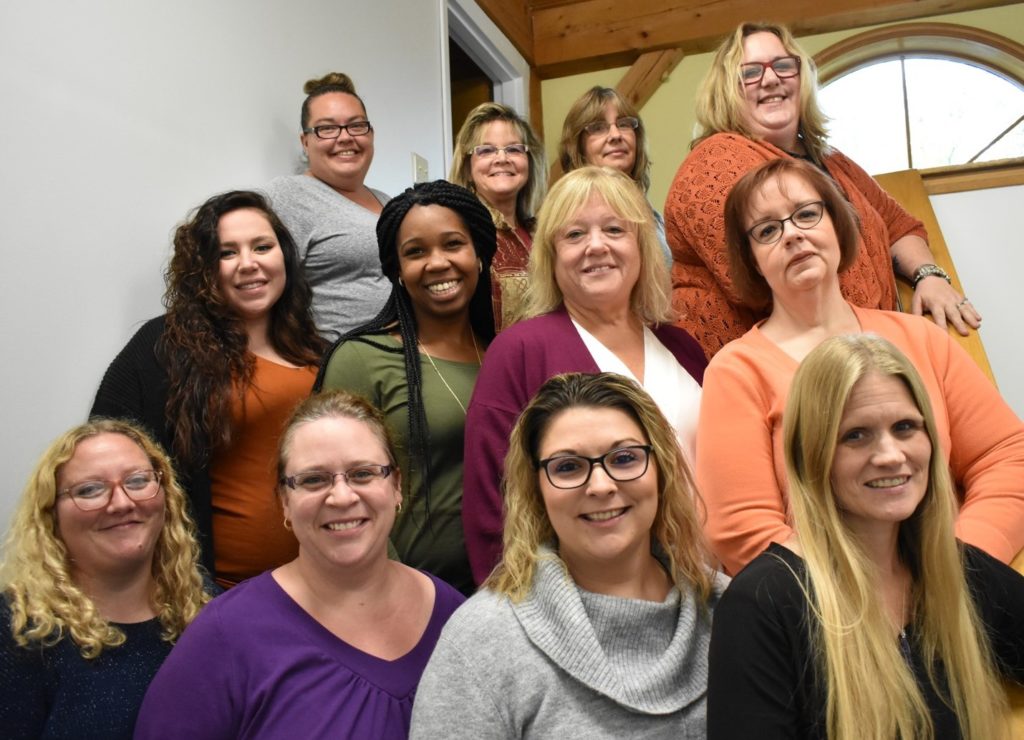
BCArc’s team of nurses include: Top from left: Shaunna Brogan, Kathy Dowd, Sharon Ireland, Roberta Kaufer. Middle row, from left: Mackenzie Melski, Caroline Eldred, Kate Hood, Leslie Potter; Bottom from left: Amy Brassard, Rebecca Carmel (no longer works for BCArc), Nicole Bak, Melissa Hunter.
A BCArc nurse makes a wide range of decisions every day, guided by layers of rules and protocol. The coronavirus did more than add a few more layers—it changed the entire rule book. Then changed it again, and then again.
“Things are settling for us, and improving, but we had to learn to change on a dime over the past two months,” said Kate Hood, who co-directs the team of 14 BCArc nurses with Caroline Eldred. “We have to judge the type of symptoms a person has, whether it’s COVID-19 related or something else, whether it’s worthy of testing, then figure who was exposed to the person during the past so many days, who else should get tested, isolated, quarantined, reported to the Board of Health, and so on.”
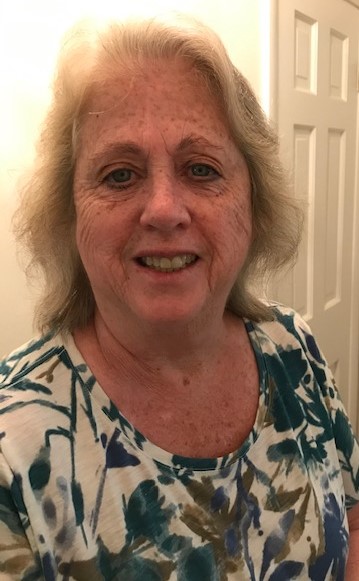
Maureen Weeks and Ann Vogel (photo to come) are the most recent additions to the team.
Kate explained that following clear guidelines helps, but guidelines changed often at the state level, and at the local level BCArc deals with numerous towns, which means numerous Boards of Health.
“Symptoms to look for changed, as did how far back to go, the length of a quarantine, the rules of exposure, access to testing, and everything else,” said Caroline. “The rules will continue to change, and our team expects this.”
Like every job at BCArc during the past two months, everything shifted from routine care to crises management. Both supervisors agreed that their team of nurses adapt easily to change, and some thrive on crises mode.
“It’s the nature of nursing, it’s why they were drawn to it,” said Kate. “We are on the phone all day with the Board of Health, coordinating with doctors, arranging for testing, making sure our individuals received their medications properly, adhering to doctor orders, and making decisions with staff about whether a headache or bad throat equated to a virus symptom.”
The routine appointments and frequent visits of our caseloads fell away to emergency work, protecting staff and the individuals, and educating everyone about the new rules issued that week or that day.
“Luckily we have a great staff of seasoned, professional nurses,” said Kate.
“The benefit of nursing at BCArc is that you have long-term relationships with patients, something rare in most nursing jobs,” said Caroline. “So we know everyone’s conditions, their ailments,, and their tolerance for pain as much as anyone in the world knows them. That helps a ton when making decisions about their symptoms.”


